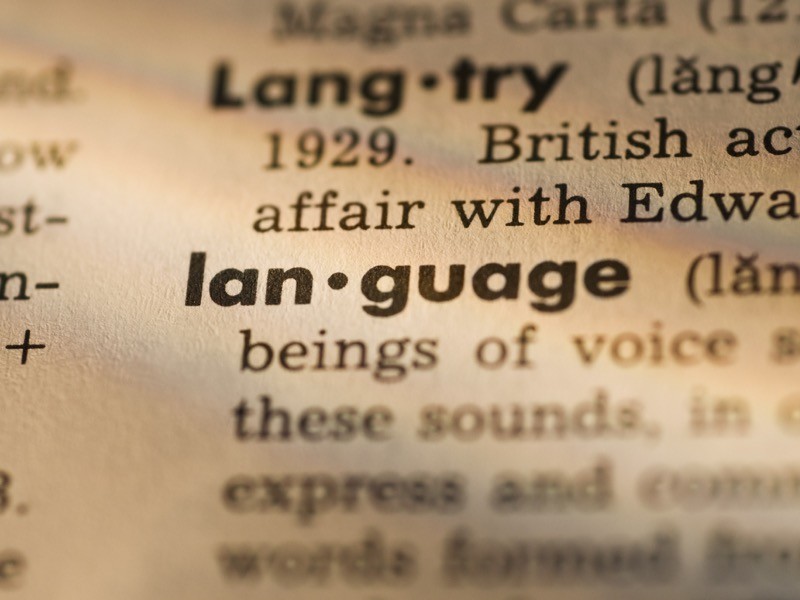In Ireland, where I am studying for a PhD in immunology at Trinity College Dublin, we have two official languages. Irish is the first and national language, English the second. Internationally, this fact isn’t widely appreciated, but before the nineteenth century, Irish was the predominant language of Ireland. The reasons for its decline are contentious and complex, but include its repression under English rule, along with the famine of 1845–50, which decimated Ireland’s population.
Today, Irish is still the first language in broad areas of counties in the south and west of Ireland, including Dingle in County Kerry and Connemara in County Galway, and is the second language in many urban areas. According to Irish census data from 2016, some 70,000 people speak the Irish language daily, and a further 110,000 speak it at least weekly. It is the only minority language recognized as one of the official working languages of the European Union.
I grew up speaking Irish in a small pocket of Ireland, in Ballinskelligs, County Kerry, where the language is still relatively common. Much to my surprise, I have found a practical use for it during my PhD programme.
In December last year, as Ireland started to reopen following its second wave of the SARS-CoV-2 pandemic, I was contacted by producers at the national Irish-language radio station (Raidió na Gaeltachta), which has a weekly listenership of more than 100,000. They wanted to know whether I would be interested in joining a current-affairs panel discussion in January, and highlighted the difficulty of finding people with a strong background in immunology who spoke Irish fluently.
I have since been a guest on the show several times. Because English is the primary language of science, I had never considered Irish to be directly useful in my chosen career. It wasn’t until I was asked to do the radio programme that I realized how important it is to have someone who can speak Irish and communicate effectively about the pandemic. I began to see a mutual benefit in having a platform for talking about the science that I love, while getting the chance to convey important information to people who might not otherwise have access to it in English.
In another surprise, I was asked to join a new initiative by Ireland’s Department of Health to communicate with younger people about the pandemic. I think the science-communication work I had begun to do in Irish played a big part in my being chosen for this role.
Irish impact
Not only has Irish been useful for engagement in a broader sense, but it has also directly helped me with my PhD programme. I study Irish women who were exposed to the hepatitis C virus through contaminated blood products between 1977 and 1979. We were interested in recruiting these women in an attempt to understand natural resistance to infection. We ran a public media campaign to find 1,200 women who had been exposed to the virus during that period, out of a total population of almost 2.5 million women in Ireland.
I appeared on radio shows to talk in Irish about the study; my team and I also used television and national newspapers to ask women to participate if they felt they met the criteria. Because we were targeting a small group of people, every media appearance helped to boost recruitment. The Irish language is an important part of Irish society, so it made sense for us to use it in our communication strategy. Ultimately, we recruited almost 300 women — a number with which we were satisfied, given the average age (70 and older) of our target demographic and its specificity. Some learnt about our project as a result of my efforts to reach out to them in Irish.
English is the working language of laboratories across the world; it is used in presentations at international conferences and in published papers. In some respects, this is a positive step for science. Mobility of researchers, communication and dissemination are the three pillars on which science is built, and a common language across borders strengthens these core values.
However, to move beyond science and communicate with the public, researchers must be able to speak the language of our audience in a literal sense — which is not always English. There’s an expression in Irish: ‘Tír gan teanga, tír gan anam’, which means, ‘A country without a language is a country without a soul’. Like a country, science needs to reflect the linguistic diversity of the general population. Having people at all levels of academia who speak multiple languages, including Irish and other minority languages, is important in bringing science to the masses and can benefit our scientific endeavours.
"can" - Google News
June 30, 2021 at 04:46PM
https://ift.tt/3y7i3Zt
Being fluent in a second language can boost your research - Nature.com
"can" - Google News
https://ift.tt/2NE2i6G
https://ift.tt/3d3vX4n
Bagikan Berita Ini
















0 Response to "Being fluent in a second language can boost your research - Nature.com"
Post a Comment